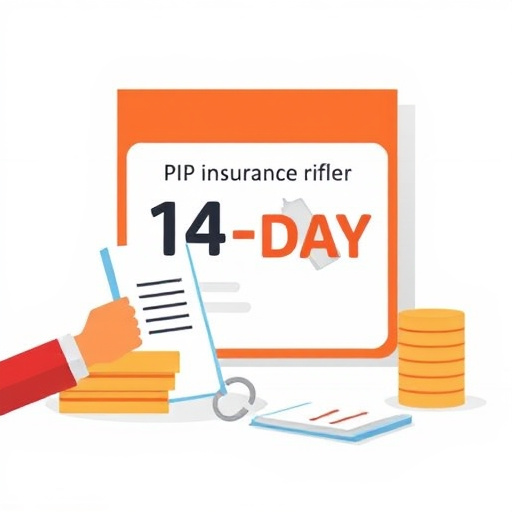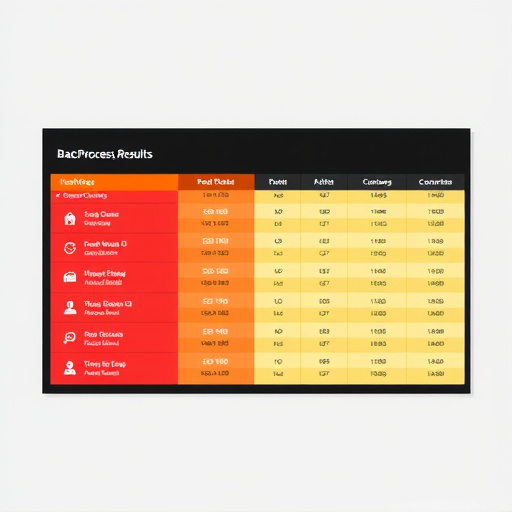The PIP insurance 14-day rule is a crucial US auto insurance policy mandate, requiring policyholders to file claims and seek medical treatment within two weeks of an accident. This time limit promotes timely healthcare, cost management, and fraud prevention. Adhering to the deadline is essential to avoid delays, denials, and financial burdens. To comply, individuals should set reminders, maintain open communication with insurers, use online tools for tracking, and regularly review policy details. Challenges include awareness, policy complexity, scheduling, and healthcare access, but clear communication, thorough documentation, and follow-ups can enhance adherence.
In today’s digital era, understanding your insurance coverage is paramount for efficient healthcare management. This article delves into a crucial aspect of medical insurance: the PIP (Personal Injury Protection) insurance 14-day rule. We’ll explore what this rule entails, its implications if missed, and provide strategies to ensure compliance. By discussing common challenges and best practices, we aim to empower folks with knowledge on treatment within required insurance timeframe limits, specifically focusing on adhering to the PIP insurance 14-day rule.
- Understanding PIP Insurance and its 14-Day Rule
- What Does the 14-Day Rule Entail?
- Implications of Missing the PIP Deadline
- Strategies to Meet the Timeframe Requirements
- Common Challenges in Adhering to the Rule
- Best Practices for Effective Treatment within Time Limits
Understanding PIP Insurance and its 14-Day Rule

PIP insurance, or Personal Injury Protection, is a crucial component of many auto insurance policies in the United States. It provides coverage for medical expenses and other related costs incurred by policyholders in the event of a car accident. One unique aspect of PIP insurance is its 14-day rule, which sets a time limit on when claims must be filed. This means that insured individuals have just two weeks from the date of the incident to initiate a claim for benefits.
The 14-day rule is designed to ensure prompt notification and treatment of injuries. By requiring timely claims, insurance companies can better manage costs and avoid potential fraud. It also facilitates faster access to necessary medical care for policyholders, as delayed treatment claims may be subject to additional requirements or denials. Understanding this rule is essential for anyone with PIP insurance, as it directly impacts their ability to receive the benefits they are entitled to after an accident.
What Does the 14-Day Rule Entail?

The 14-day rule is a crucial aspect of PIP (Personal Injury Protection) insurance policies, designed to ensure timely treatment and management of injuries. This rule stipulates that an insured individual must seek medical attention or treatment for their injury within 14 days of the incident occurring. Failure to adhere to this timeframe could result in a potential claim denial. The primary objective is to prevent delays in care, which might lead to complications or a deterioration of the patient’s condition. It encourages individuals to promptly address their health and well-being after an accident or injury.
This rule is particularly relevant when dealing with minor injuries that may initially seem manageable but could require professional attention over time. By establishing this timeframe limit, insurance providers aim to promote proactive healthcare seeking behavior among policyholders, ensuring that any necessary treatments are received without unnecessary delays.
Implications of Missing the PIP Deadline

Missing the PIP (Pre-Authorization or Pre-Approval) deadline within the prescribed timeframe, often set at 14 days by insurance providers, can have significant implications for policyholders seeking treatment. This time-sensitive requirement is a critical aspect of managed care, designed to ensure that medical services are both necessary and cost-effective. When a patient fails to meet this deadline, it may result in delays or even denial of coverage for their intended treatment.
The 14-day rule is a standard practice aimed at balancing the rights of patients with those of insurance companies. It requires healthcare providers to initiate the PIP process promptly, allowing insurers to review and approve or deny claims within the specified timeframe. Non-compliance can lead to financial burdens for policyholders, as they may be responsible for paying for services out of pocket before receiving reimbursement, if approved at all. Moreover, repeated missed deadlines could reflect poorly on a patient’s overall management of their healthcare needs.
Strategies to Meet the Timeframe Requirements

Meet timeframes with a strategic approach. Many policies have specific rules, like the 14-day rule for PIP (Personal Injury Protection) insurance, dictating when certain actions must be taken. Stay organized by setting reminders for key dates and ensuring all paperwork is completed accurately and on time. Prioritize communication with your insurer to clarify expectations and deadlines, and maintain detailed records of all interactions and documentation.
Utilize available tools and resources. Some insurers offer online portals or mobile apps designed to streamline the claims process. Take advantage of these platforms to easily track progress, access documents, and communicate updates within the required timeframe. Regularly reviewing your policy and understanding its specific requirements is also key to navigating these limits successfully.
Common Challenges in Adhering to the Rule

Many individuals face challenges when it comes to adhering to the PIP (Personal Injury Protection) insurance 14-day rule, which requires seeking medical attention within a specified timeframe after an accident. One common hurdle is the lack of awareness about this critical period. Many people are unaware of the deadline until they attempt to file a claim, leading to potential delays in receiving necessary treatment. This is especially true for those who experience immediate symptoms or believe their injuries are minor and will resolve on their own.
Another significant challenge is navigating the complexities of insurance policies and understanding what constitutes “timely” care. Different insurers may have varying interpretations of the rule, and patients might struggle to differentiate between routine check-ups and emergency care, especially when dealing with painful or unpredictable symptoms. Additionally, scheduling conflicts, transportation issues, and a lack of accessible healthcare options can all contribute to missing the 14-day window, potentially impacting claim eligibility.
Best Practices for Effective Treatment within Time Limits

When navigating treatment within required insurance timeframe limits, such as the PIP (Personal Injury Protection) insurance 14-day rule, it’s crucial to implement best practices for effective and efficient care. Firstly, clear communication is key; patients and healthcare providers should understand the urgency of adhering to these timeframes. Prompt scheduling ensures that treatments are not delayed, maximizing the potential for positive outcomes.
Additionally, maintaining thorough documentation is vital. Keeping detailed records of patient history, diagnoses, and treatment plans facilitates smooth progress tracking within the given limits. Regular follow-ups with patients also help identify any potential issues or non-adherence to the treatment plan early on, allowing for timely adjustments to optimize results.














